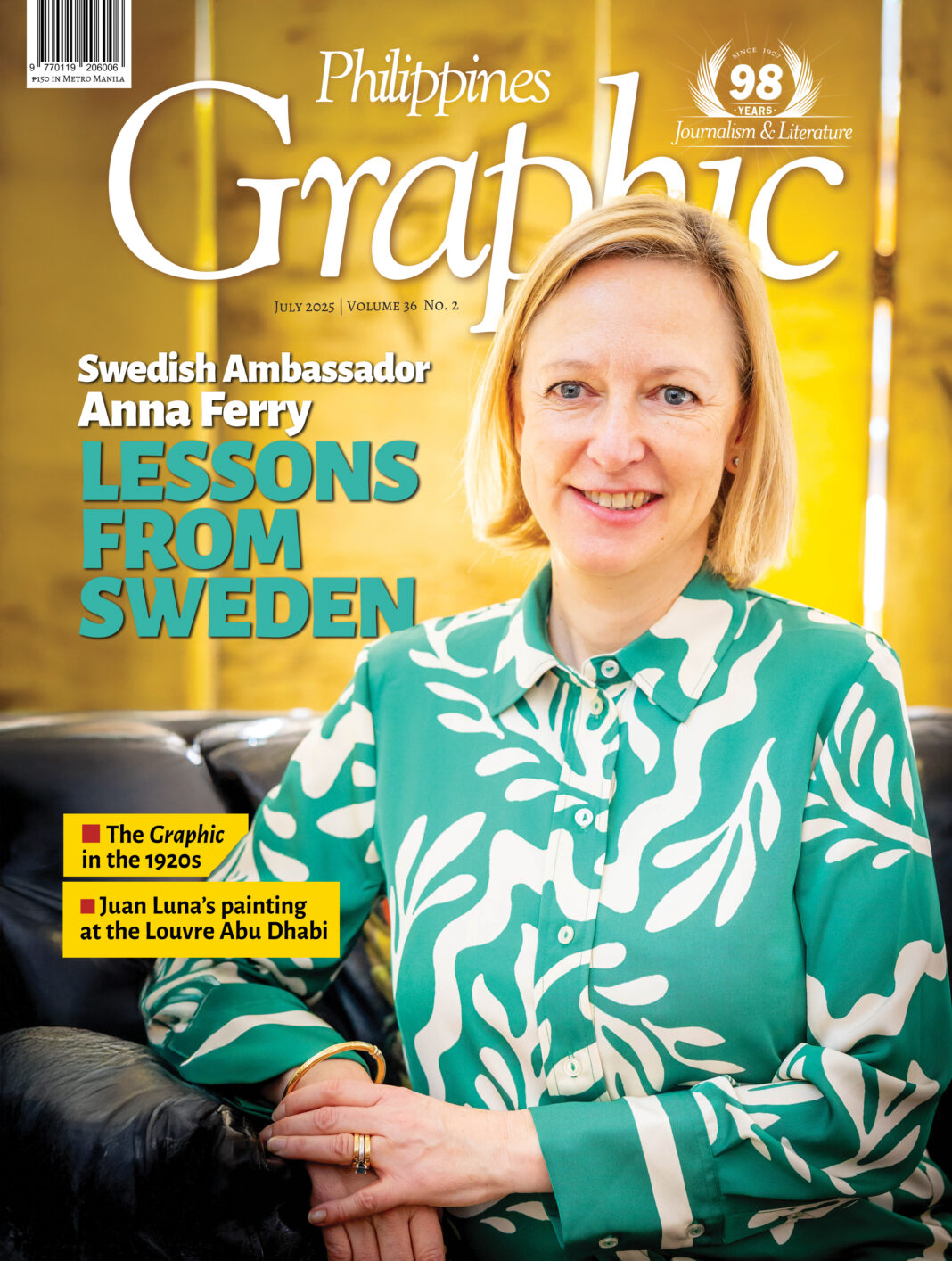(In an exclusive interview with the Philippines Graphic, Swedish Ambassador Anna Ferry shared her insights, experiences, and lessons for a mutually-beneficial partnership with the Philippines.)
Just like winning the lottery. That is how Ambassador Anna Ferry described her reaction upon being offered her current assignment as the Kingdom of Sweden’s top envoy to the Philippines.
It can be said that the Philippine government is just as lucky, as both countries are charting a new era of partnership—driven by shared ambitions for sustainable development, inclusive growth, and regional stability.
For many Filipinos, Sweden brings to mind snow-covered landscapes, the Northern Lights, films like The Girl with the Dragon Tattoo, as well as the world-famous pop band ABBA, whose music was further immortalized in recent years by the movie Mamma Mia!
With an average air travel time of about 19 hours involving one or two layovers, Sweden’s location in Northern Europe may make it feel remote to Pinoys unfamiliar with its globally connected, English-friendly culture.
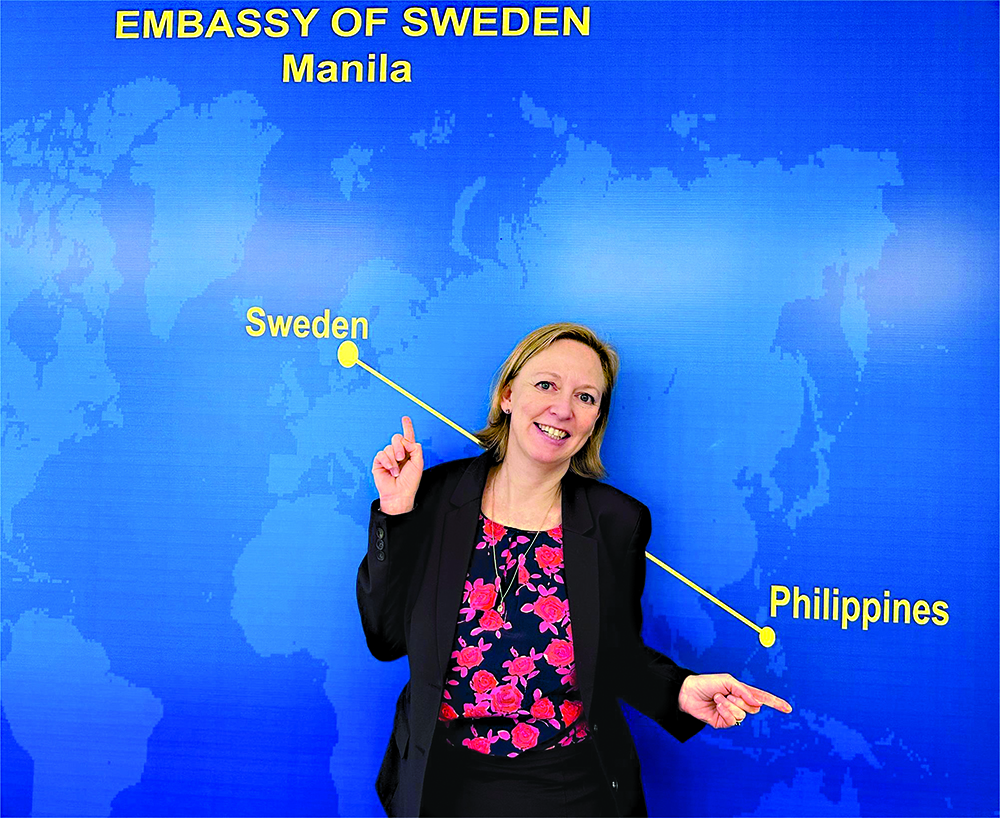
“People don’t realize that almost everyone in Sweden speaks English. You can live, study, and thrive there without needing to speak Swedish. The quality of life is high, and it’s easy to get around by bike, by foot, or using public transport,” said Ferry.
Describing them as “livable, connected, and close to nature,” she also mentioned that Swedish cities are known for their green spaces, bike lanes, and walkability.

Swedish culture is deeply connected to nature, balanced with a strong sense of community. “When it’s dark and cold, we gather indoors. We have fika—coffee breaks among colleagues—and enjoy meals, movies, and good conversation. And come spring and summer, people pour outdoors, full of energy,” Ferry said.
That enabling environment has helped foster a culture of innovation among Swedes: For starters, think of Spotify, Candy Crush, and the ubiquitous seatbelts in almost every car—the list is comprehensive.
In fact, Sweden led the European Union anew in innovation, as the European Commission announced its annual report by way of the European Innovation Scoreboard and Regional Innovation Scoreboard. Capital city Stockholm was also adjudged the continent’s “most innovative region.”
INCLUSIVITY
The Swedish Ambassador said that as a society, Sweden is proudly
inclusive. “We’ve worked for decades to ensure equal rights for women and the LGBTQIA community. That openness and equality are part of who we are—and they’re part of what makes Sweden a safe and inspiring place for Filipinos to study and grow.”
This culture of inclusivity is similarly evident in the Scandinavian nation’s business sphere, as manifested in corporate policy directions and company operations.
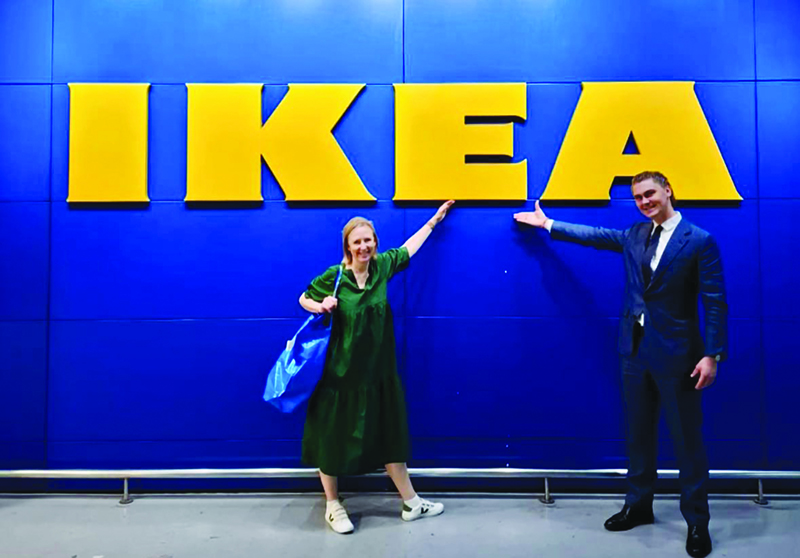
Sweden gave the world IKEA: a multi-billion-dollar company that revolutionized the global furniture industry by introducing flat-pack designs that customers could assemble themselves at home.
Operating in more than 60 countries, it employs over 200,000 people from diverse backgrounds, covering gender, age, ability, and nationality.
According to its latest company annual report, IKEA has created over 30,000 jobs in marginalized communities and aims to reach 95,000 jobs by 2025.
On Nov. 25, 2021, IKEA officially started its Philippine operations, with the opening of its first physical store in Pasay City.
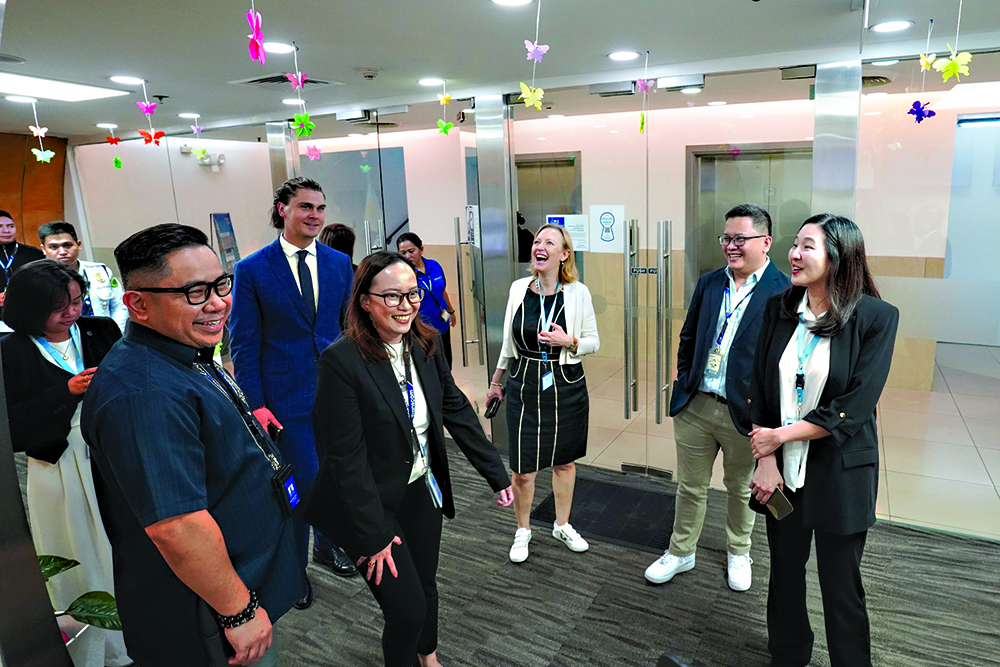
In like manner, Swedish-owned, BPO company Transcom Worldwide AB was launched in the country in 2007 and currently has six local offices across the country, creating around 10,000 jobs.
To ensure that its workplaces are inclusive and ethical, Transcom has adopted policies consistent with international labor and human rights standards.
IKEA and Transcom have continued to expand operations in the country, employing thousands and underscoring Sweden’s commitment to fair labor and inclusive economic growth.
PROMISING TRAJECTORY
Recent breakthroughs have placed Sweden-Philippines relations on a promising trajectory.
Agreements signed in Manila earlier this year unlocked Swedfund grants to support Phase 2 of the EDSA Busway. Swedfund is Sweden’s development finance institution.
In February of this year, an agreement was signed between the country’s Department of Transportation (DOTr) and Team Sweden for a SEK 3 million (PhP18 million) grant to support the EDSA Busway project.
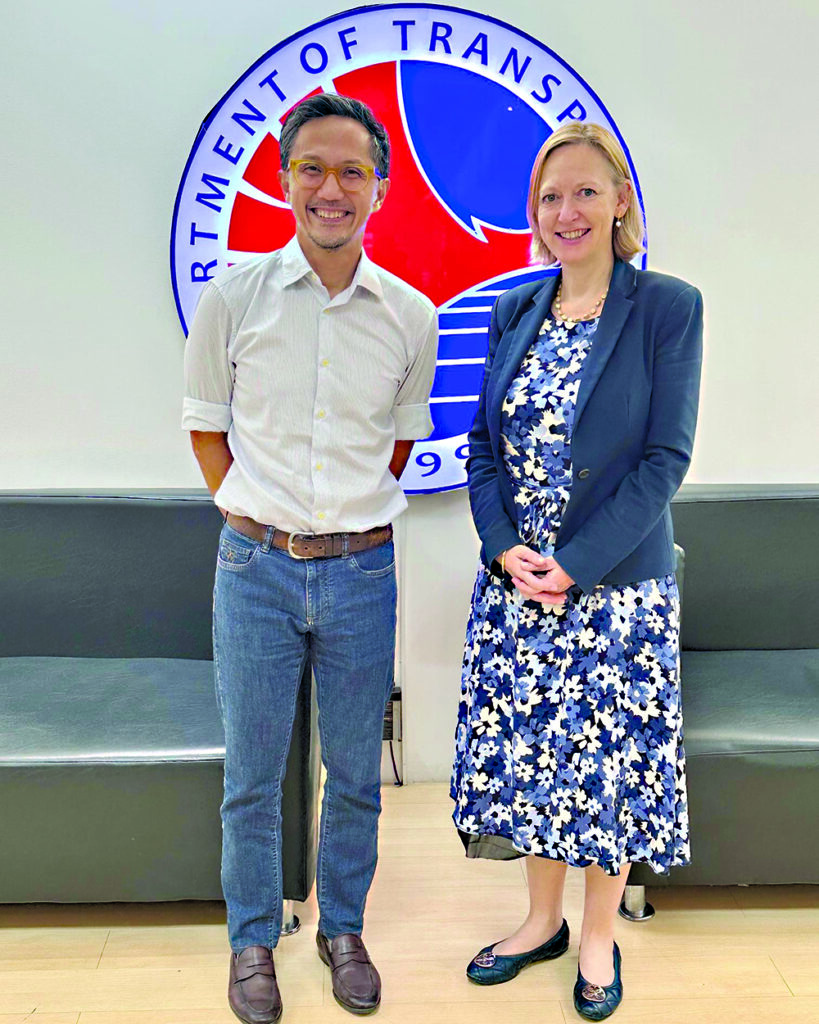
Team Sweden—composed of the embassy, Business Sweden and Swedish firms—is greatly involved in other areas of the transport sector such as rail and aviation.
To further extend the tie-up, the team recently launched the “Bus Transit Innovation Platform” in Cebu—a project that introduces advanced and integrated transportation solutions for public transportation systems in the Philippines.
According to the Embassy of Sweden, the initiative underscores the Scandinavian country’s commitment to supporting the Philippines in the latter’s pursuit of sustainable development and economic growth.
The Swedish government, through Swedfund, first partnered with DOTr to support the EDSA Busway development in 2018 and have previously contributed grants of about SEK 10 million (roughly PhP59 million).
A similar project, backed by Swedfund grants, is in the works to improve access between Iloilo and Guimaras province. “We want to help Filipino cities develop smart transport systems powered by unified payment solutions.”
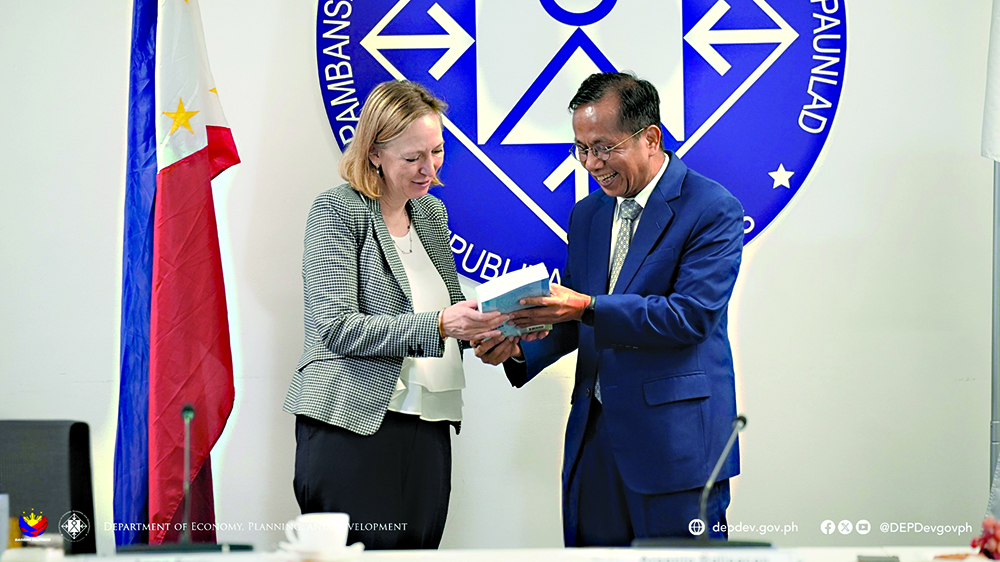
Team Sweden’s comprehensive Philippine market report identified Swedish technology contributing to renewable energy, smart cities, digital health, digital infrastructure projects, and sustainable transport and mining as key growth areas for cooperation, reflecting a clear alignment between Swedish expertise and the Philippines’ development priorities.
SUSTAINABILITY
Sustainability plays a strategic role in Swedish society and is reflected in their trade and investment relations worldwide.
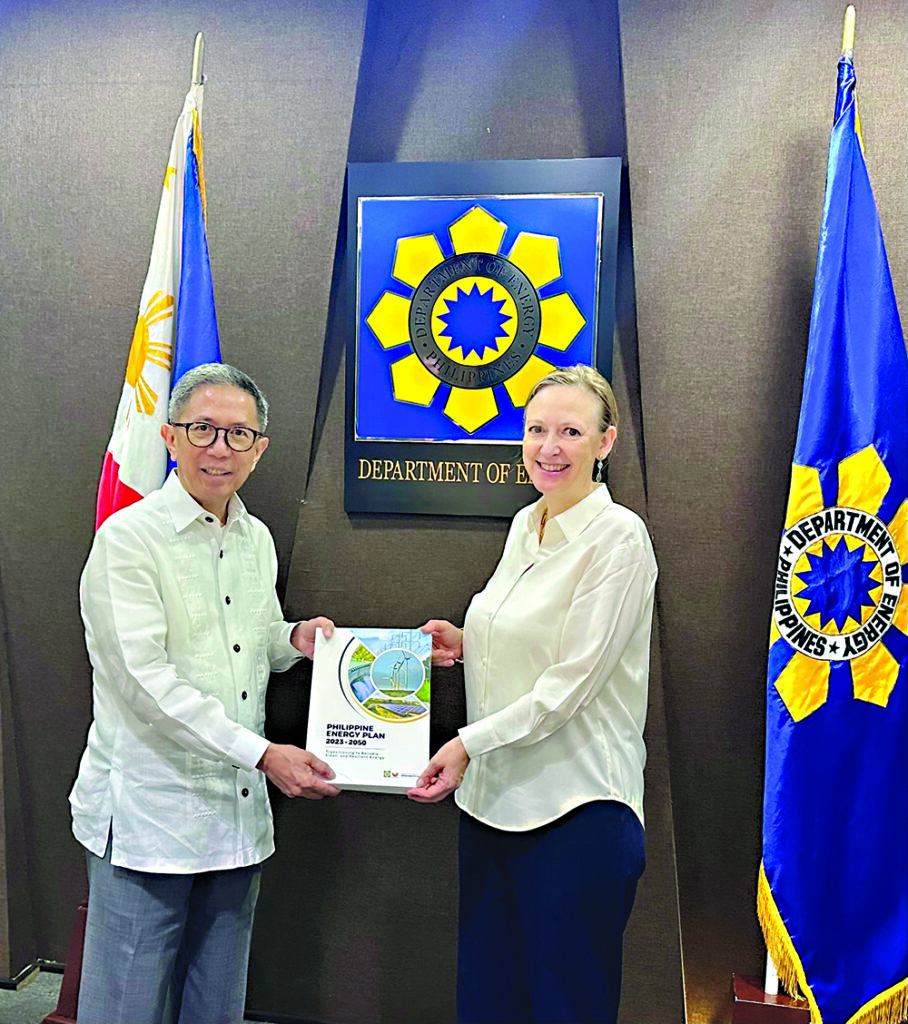
Swedish companies bring their expertise in clean energy and green mobility to their pilot projects in the Philippines, building a low-carbon, digitally connected future.
“The Philippines has tremendous potential in renewable energy, but much of it is still untapped,” Ferry said. “These pilots are meant to demonstrate what’s possible and, if successful, be replicated at scale.”
She added that “Sweden is supporting feasibility studies and technology pilots here—particularly through Swedfund and the Swedish Energy Agency. We’re looking into renewable energy hybridization solutions particularly in remote off-grid islands which can include both floating offshore wind and ocean renewable energy technologies.”
The envoy emphasized that the goal is to design small-scale pilot projects that can be replicated at larger scale, helping the Philippines meet its energy targets through practical, proven models.
In the mining sector, she pointed to Swedish companies like Volvo Construction Equipment, Axis Communications, Epiroc, Sandvik, ABB, and Ericsson. “These firms offer not just equipment but systems—safe, connected, automated technologies that make mining more sustainable and efficient.”
She described a recent visit to a mine in Sweden, where operators remotely controlled vehicles from a surface-level control room. “That’s the kind of innovation we’re trying to share here.”
“Connectivity is critical in modern mining,” Ferry said. “You need real-time monitoring and remote operation to improve safety and efficiency. Such innovations—enabled by financing, infrastructure, and skills—can be replicated in the Philippines.”
While Swedish solutions are often seen as premium, Ferry emphasized that their long-term value makes them cost-effective.
“You have to look at the lifecycle cost,” she said. “These technologies reduce energy use, improve safety, and last longer. Plus, our export financing system offers loans and guarantees to make it more accessible to both government and private companies.”
Still, she acknowledged the challenges: “Technology is only one part; you also need the connectivity, the upskilling of workers, and the financial support to make these solutions viable. That’s where Sweden’s export financing system comes in.”
To make its technology more accessible to Philippine partners, Sweden has activated locally its export financing framework composed of the Swedish Export Credit Corporation (SEK) and the Swedish Export Credit Agency (EKN).
This system was formally launched locally through a memorandum of understanding signed in November 2024. It provides loans and guarantees for both public and private sector projects in sectors like clean energy, sustainable transport, and even defense.
Ferry confirmed that “it can be used by local government units, national agencies, or private companies. For example, if [a major conglomerate] wants to build an airport using Swedish technology, the financing structure is there to support it.”
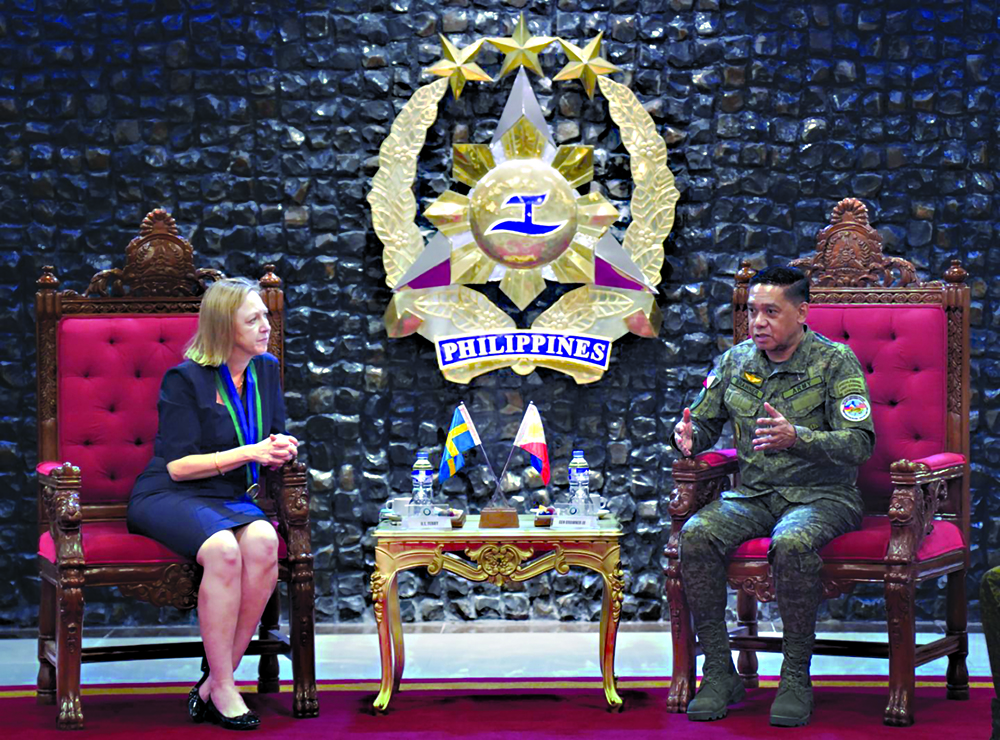
The system underpins not just economic development, but also defense offers like the Gripen multirole fighter jets. “Yes, our offer still stands,” she confirmed. “It’s up to the Philippine government to decide what they want to procure. But the financing package is ready.”
TAPPING THE SWEDISH MARKET
Ferry, who previously served as ambassador to Peru, brings with her a solid track record in trade diplomacy, economic development, and multilateral engagement. Her path to diplomacy, she says, was shaped by a deep sense of curiosity and a passion for relationship-building.
“I love learning new things and meeting new people,” she shared. “I think it’s fantastic to be able to build bridges between countries—not just in business or policy, but also in education and people-to-people connections.”
While laying the groundwork for deeper bilateral ties, Ferry envisions Sweden and the Philippines partnering on multiple fronts spanning education, sustainable infrastructure, healthcare, defense cooperation, and trade that will form part of both governments’ linkages moving forward.
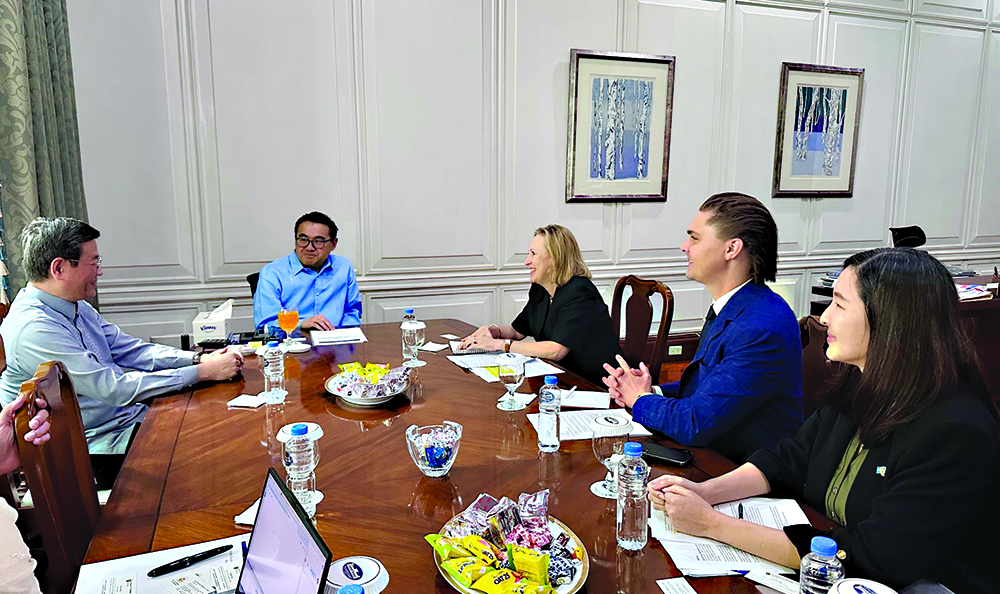
According to Sweden’s top diplomat, trade between the two countries has been growing steadily, averaging an annual increase of 3% over the past two to three decades and is now up to 11%.
“We’ve seen a recent acceleration,” Ferry noted, “especially in sectors like energy efficiency equipment, food-processing technologies, and medical technologies.”
As such, the team of Business Sweden—the trade arm of the Embassy—has traveled to 15 cities across the Scandinavian country over the past year to promote trade and investments to the Philippines.
“We’re not just focused on encouraging Swedish exports,” she noted. “We also want more local small and medium enterprises to enter the Swedish and EU markets.”
For this purpose, Sweden offers Open Trade Gate Sweden, a program under the National Board of Trade that helps companies understand and meet EU regulations, while providing coaching and market insight for long-term success.
Ferry sees enormous potential for increased people-to-people interaction through tourism.
“Swedes love to travel, especially in the cold seasons. In 2024, around 23,000 visited the Philippines,” she said. “That’s promising, but it can grow. Swedes are adventurous travelers. We save up during our long winters and fly to places like Thailand and Mexico—why not the Philippines?”
She sees strong tourism appeal in Siargao, Boracay, Bohol, and Palawan. “Nature, diving, food, English-speaking locals—it’s all here. The Philippines has so much to offer—warm hospitality, beautiful beaches, world-class diving, and so much more,” she said. “We just need more awareness, and better air connectivity.”
MEANINGFUL DIPLOMACY
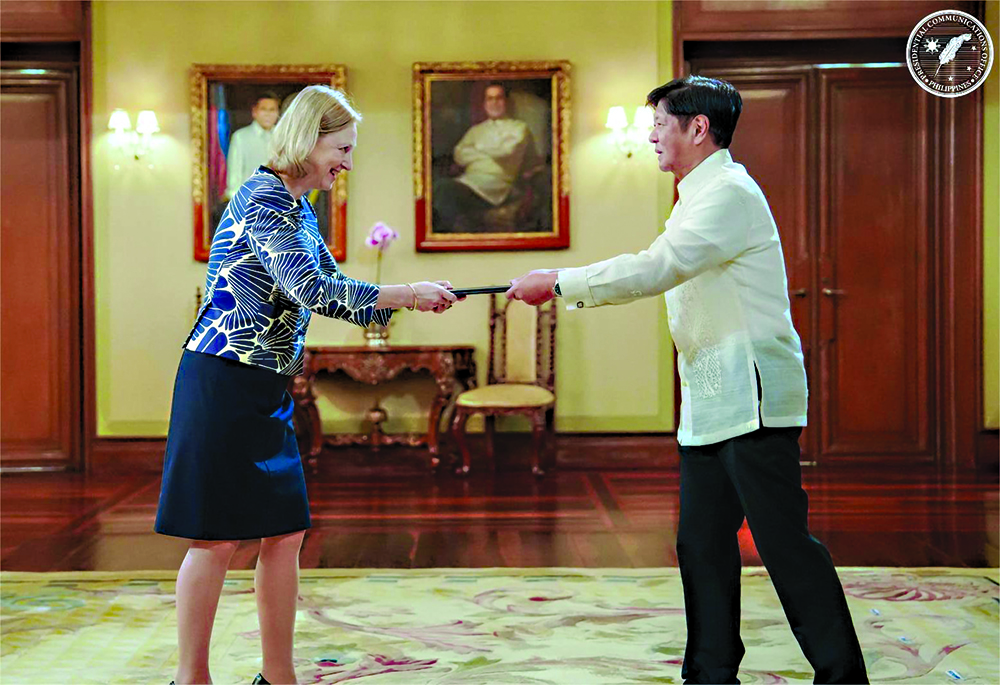
With a background in economics, Ferry’s career has spanned postings in India, Honduras, Peru, and the United States.
The Swedish envoy’s specialization in economics has helped shape her diplomatic outlook. “I trained as an economist and have worked extensively in areas like development cooperation and trade diplomacy,” she said.
Ferry’s extensive résumé includes posts in Sweden’s Central Bank and Ministry of Finance, as well as the Swedish International Development Cooperation Agency (Sida), along with a unique stint at the World Bank in Washington, D.C., where she served as a senior advisor to Sweden’s executive director on the board.
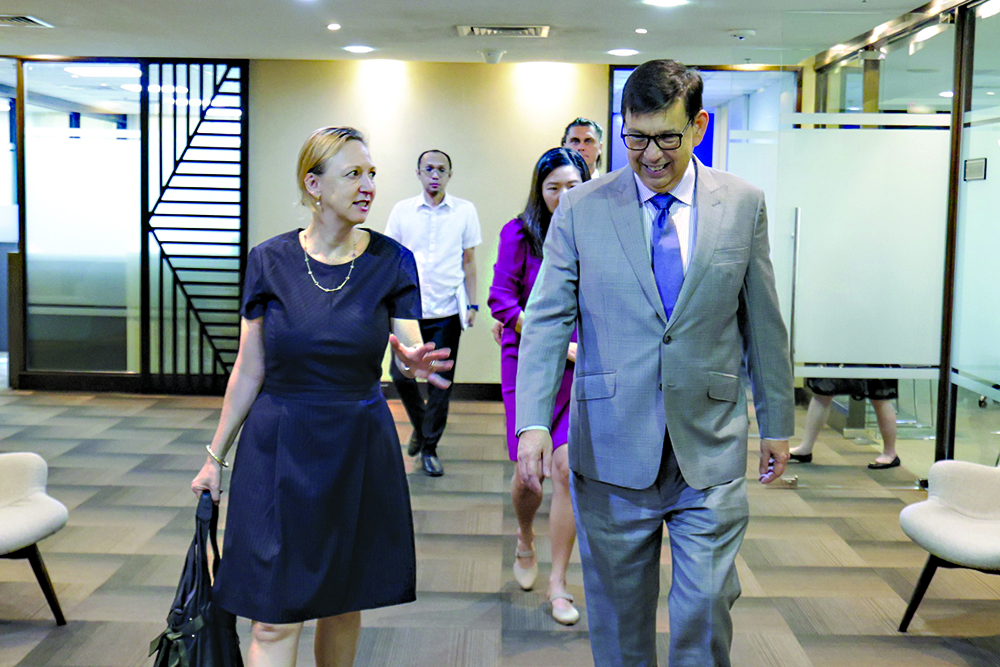
“That role was directly tied to the executive board of the World Bank. It gave me a much deeper understanding of how multilateral institutions shape global development—particularly how financing tools can unlock innovation and sustainability in partner countries.”
The long-time diplomat shared that she returned to Stockholm after several years of overseas assignments. “It’s a requirement for diplomats to return home after extended postings,” she explained. “But now I’m excited to be back in the field.”
As Sweden and the Philippines chart a future of more robust and inclusive cooperation, Ambassador Ferry’s approach is both strategic and human.
She hopes that during her tenure, she can help strengthen institutional links and create lasting pathways for education, innovation, and development.
“I want to see deeper people exchanges, greener infrastructure, stronger maritime ties, and more trade,” she said. “But above all, I want to help build a friendship between our peoples—one based on openness, equality, and creativity.”
Backed by Sweden’s support and her own diplomatic warmth, Ambassador Anna Ferry is doing just that—one bridge at a time. And if her posting in Manila felt like winning the lottery, then the Philippines may have hit the diplomatic jackpot—with a lucky charm who turns goodwill into sustained, game-changing results.
“Beyond the agreements and memoranda, it’s the friendships, networks, and personal relationships that make cooperation real and lasting, long after diplomats move on,” she said. “What makes diplomacy meaningful is the people.”
Asked what Filipinos might appreciate about Sweden, she points to the country’s core values: democracy, respect for human rights, equality, love for nature and open-mindedness. “We believe in consensus-building and teamwork,” she said. “That approach helps us tackle problems together.”
And she’s not afraid to venture into the lighter side of diplomacy either. Asked what song she’d belt out in a diplomatic karaoke night, she didn’t miss a beat: “Dancing Queen, of course. ABBA is in our DNA!”
_____________________
Mike Policarpio is a communications professional who juggles his editorial duties between the Philippines Graphic and its sister publication, BusinessMirror. On some occasions, he writes verses in English and Filipino, which he hopes could be laid with pop-jazz music or find audiences in poetry-reading sessions.
Malou Talosig-Bartolome is a veteran journalist with over 25 years of experience in both print and broadcast industries, specializing in diplomatic reporting. She started as a police and defense reporter in 1994, then became the foreign affairs reporter for Today newspaper until 2002. As a diplomatic beat reporter, she was assigned to cover summits of the Association of Southeast Asian Nations (ASEAN), Asia Pacific Economic Conference (APEC), and Asean-Europe Meeting (Asem) in major capitals. She was also invited to interview heads of states and attend short fellowship journalism and diplomacy programs in the US, Europe, and Asia. She has spent 15 years in the broadcast industry as senior news editor of GMA Network Inc.

